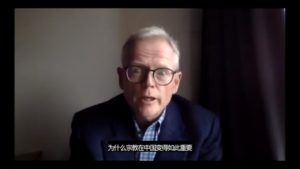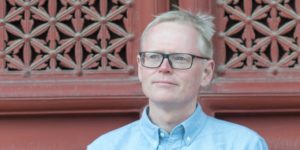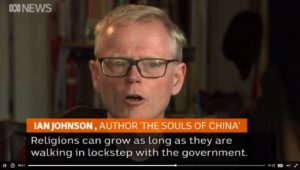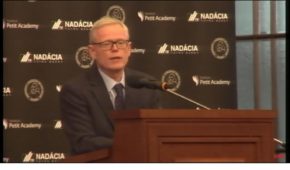hit the bookshelves. Some of them got stuck with questions and
Oclarim Johnson answers some of them. How does he define religion, and why are the Tibetans and Uighurs not included.
How did the book take form?
I tried to identify representative cases for the spiritual life of ethnic Chinese people. That meant making a tough decision to leave out minority groups, such as Tibetans and Uighurs, because I felt that their stories were very different from ethnic Chinese. Also, ethnic Chinese make up 91 percent of China’s population and so I felt it was enough to try to cover their faiths. The question was how: China is such a big country. So I read a lot, traveled a lot, and after many false starts began to find the five case studies that make up this book.
You talk about religions in China in your book. What is your definition of religion?
Good question! I try not to answer that. Sociologists debate this endlessly. I would say I have a broad definition. It is not just an organized faith like Catholicism or Islam, but can include rituals and beliefs that people practice on their own that give their life a deeper meaning. Today, in many parts of the world, this is how faith is expressed: personally and privately, as opposed to communally as in the past, especially when most of us lived in villages. So I tried to have an open definition.
You mention the destruction of religious buildings in China in the last century. Can you expand on that?
China began to attack religion in the late 19th century as part of a general self-doubt about its traditions and culture. Faith practices began to be defined as illegitimate or legitimate based on the imported western paradigm of “superstition” versus “religion,” terms that originated in the Reformation as a way initially to discredit Catholicism and later used in other parts of the world to attack indigenous faiths. Chinese elites began to define most of their practices as superstitious. A huge wave of auto-cultural genocide ensued. By 1950 half the temples in China had been destroyed. The Cultural Revolution from 1966-1976 was the culmination, when all places of worship were closed.
You have said that there is a religious awakening in China after the Mao era. Don’t you feel that Maoism was a sort of religion?
Maoism was an ersatz religion for a government that had destroyed its cultural heritage and was looking for new ways to satisfy people’s hunger for belief. Of course, it died when he died…..
What, in your opinion, is the most significant story in your book?
My preference is for the Beijing pilgrimage associations, which are working-class people who organize one of the most boisterous, hard-drinking, hard-smoking pilgrimages I’ve ever attended – to Mt. Miaofeng in Beijing’s western suburbs. It’s certainly the most fun story in the book.
You also visited underground churches. What you can say about this experience?
Most underground churches are underground in name only. They are often big with hundreds of members and I guess about 99 percent are well-known to authorities. So essentially they are not underground but are simply not registered with the government because they reject government control over religion. But for various reasons the government tolerates them, largely because most are apolitical.

discusses why religion has become such an important issue in China, both in domestic and international debates at the Bridge Projects. (With subtitles in Chinese)










